
A market of 100 million people and the aspiration to be a pillar of the national economy
In the era of industrialization and increasingly deep international integration, the role of the domestic market has gone beyond the simple function of being a place for goods circulation. On the afternoon of October 28, 2025, at the Domestic Trade Development Policy Forum in 2025 organized by the Department of Domestic Market Management and Development ( Ministry of Industry and Trade ), this stature was strongly affirmed that the domestic market is an endogenous driving force that needs to be thoroughly exploited, a new pillar to ensure stability and sustainable growth for the Vietnamese economy.
Speaking at the Forum, Mr. Bui Nguyen Anh Tuan - Deputy Director of the Department of Domestic Market Management and Development emphasized that we need to see the domestic market not only as a place to consume products, but also as an important driving force to promote production, create jobs and ensure social security. In the context of the uncertain global supply chain, the market of 100 million people is a shield and a launching pad for Vietnamese enterprises.
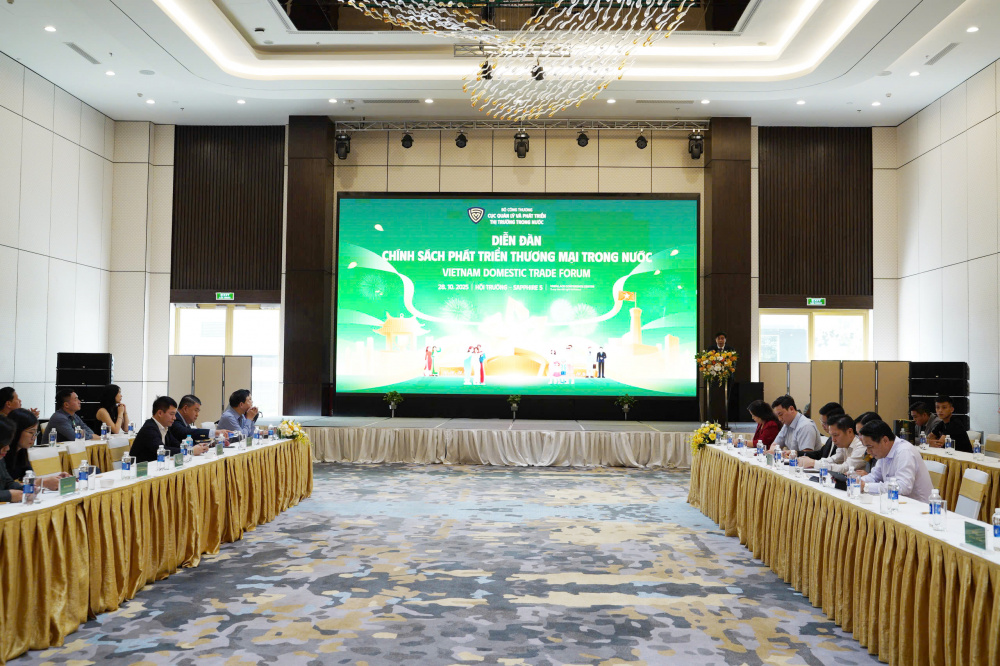
Overview of the Domestic Trade Development Policy Forum 2025
From that strategic perspective, the ambition is not only to maintain but also to create a "leap" for domestic trade. This requires a systematic framework of action, a comprehensive transformation from management thinking to consumer behavior, towards a more humane, environmentally friendly and transparent market, especially in the context of changes in consumer behavior such as green living, sustainable consumption, and circular economy that are increasingly taking shape.
To realize the aspiration of turning the domestic market into a pillar of growth, the Forum announced four key strategic orientations, forming a framework for the period 2025-2030. This is a smooth combination of preserving traditional values and applying modern technology, demonstrating the determination to "transform" from the roots.
The first orientation focuses on developing green trade and logistics infrastructure. Mr. Bui Nguyen Anh Tuan affirmed that this is the most important material foundation for the market to operate smoothly. It is not only about building new ones, but also about upgrading traditional markets in a civilized and modern direction, ensuring the preservation of cultural values and community connection. The highlight of this orientation is the "smart market" model applying digitalization, which is prioritized for implementation in rural, mountainous, remote and isolated areas, to narrow the access gap and promote the effective circulation of goods.
In addition, it is necessary to perfect the legal framework for e-commerce. The continuous explosion of e-commerce requires a solid and clear legal corridor. The Ministry of Industry and Trade is urgently amending the Law on E-commerce and building a national e-commerce platform. This is a platform that comprehensively integrates payment, logistics, and especially traceability using advanced technologies such as blockchain, QR... to increase transparency and consumer trust.
In addition, digital transformation is a revolution in the management model. The goal is to form a comprehensive digital ecosystem for businesses, cooperatives, small and micro enterprises. The focus is on developing smart retail through the application of artificial intelligence (AI), big data, and promoting cashless payment methods, gradually shaping a modern consumption style.
Finally, institutional improvement – enhancing competitiveness. This involves reviewing and amending retail management regulations and trade infrastructure standards. Reducing administrative barriers, increasing transparency and protecting consumer rights are key factors, helping businesses feel secure in long-term investment and consumers have absolute confidence in the quality and origin of domestic goods.
Businesses and consumers: The moving links
Macro strategies need micro-resonance. Developing the domestic market, according to Mr. Tuan, is not the sole task of the Ministry of Industry and Trade but a "common journey" that requires consensus and joint efforts from the government, businesses, and people. So, how is this movement taking place in reality?
From a business perspective, Ms. Nguyen Thi Minh Hanh, General Director of a famous mini supermarket chain in the Southern region, shared in an interview after the Forum that perfecting the legal framework for e-commerce and developing green logistics infrastructure are two factors that determine the survival of small and medium-sized retail enterprises. Previously, logistics costs were too high, making it difficult to expand to rural areas. With the orientation of green logistics and optimizing the supply chain, we can bring high-quality Vietnamese goods to people in remote areas at more competitive prices.
"In particular, the "smart market" model is a lifeline for individual businesses. We are piloting the installation of cashless payment points and integrating the QR code traceability system for some wholesale markets. Initially, there was some hesitation from traders, but when they saw increased business efficiency, they were willing to participate. This shows that digital transformation is not a replacement but a regeneration of traditional values," Ms. Hanh commented, emphasizing the role of technology in "preserving the Vietnamese soul" for each market session.

Vietnamese breath in every market session – The story of domestic trade in the 4.0 era
Sharing the same belief in this transformation, Mr. Tran Van Bac, representative of an agricultural cooperative participating in the Autumn Fair, expressed: "For small producers like us, the challenge is not quality, but trust and transparency. The Ministry of Industry and Trade's promotion of traceability using Blockchain and requiring integrated e-commerce platforms will help our cooperative's products, which are clean agriculture , easily reach consumers nationwide. The recent Autumn Fair has proven that customers are willing to pay higher prices if they can scan the QR code and see the entire journey from field to booth. This policy is the driving force for us to digitize the production process, not just sales.
Yes, in reality, transparency and consumer protection are the keys to "regenerating Vietnamese purchasing power". Ms. Le Thu Hien, a young customer in Hanoi experiencing shopping at the Autumn Fair, said: "I am willing to spend on Vietnamese goods, high-quality domestic goods. However, the biggest problem is how can I trust the origin of the product, especially when shopping online. I think that just by scanning the QR code, all information about the farm, manufacturer, and transportation process will appear clearly. That is the basis for me to become a 'loyal customer' of the domestic trade industry".
In addition, the green consumption trend is creating positive pressure on businesses. Mr. Tuan pointed out that changing consumer behavior requires the market to develop in a humane and friendly direction. Businesses must invest in sustainable production, reduce plastic waste, and apply circular economy. This is not only a social responsibility but also a new competitive advantage, highly appreciated by modern consumers.
With a spirit of perseverance and innovation, Vietnam's domestic market is gradually asserting its role as a "lifting force" to help the economy grow, ensuring stable growth and deeper integration into regional and global value chains.
However, the journey ahead still has many challenges to overcome. The biggest challenge is how to make green and smart trade infrastructure spread quickly and evenly, especially in remote areas where physical infrastructure and digital awareness are still limited. Proper control of e-commerce, ensuring transparency, data security and combating counterfeit and pirated goods is also an urgent task.
At the same time, there needs to be a specific support mechanism for small and micro enterprises to quickly adapt to the digital production and sales environment. They need simple, low-cost but effective management tools so as not to be left behind in the technology race. And above all, creating strong trust for domestic consumers is still the top priority, turning them into long-term "loyal customers" of Vietnamese goods.
Mr. Tuan emphasized that each enterprise, each business household, each consumer is a link in this development chain. Only when everyone participates, moves and accepts change, will domestic trade not only be a strategic keyword but a vibrant, sustainable reality. The journey to revive Vietnamese purchasing power is a continuous process, where close cooperation between the Government, businesses, and people will be the decisive factor for victory in the digital age./.
Source: https://vtv.vn/chinh-sach-mo-duong-thi-truong-khoi-sac-dot-pha-moi-trong-thuong-mai-noi-dia-2025-100251028195620789.htm


![[Photo] President Luong Cuong receives US Secretary of War Pete Hegseth](https://vphoto.vietnam.vn/thumb/1200x675/vietnam/resource/IMAGE/2025/11/02/1762089839868_ndo_br_1-jpg.webp)

![[Photo] Lam Dong: Images of damage after a suspected lake burst in Tuy Phong](https://vphoto.vietnam.vn/thumb/1200x675/vietnam/resource/IMAGE/2025/11/02/1762078736805_8e7f5424f473782d2162-5118-jpg.webp)



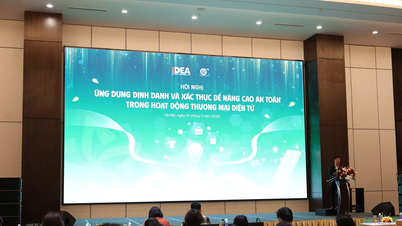

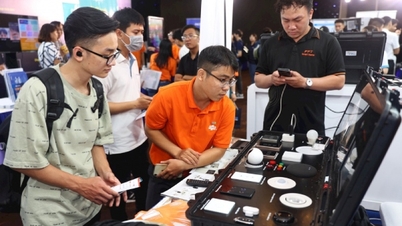



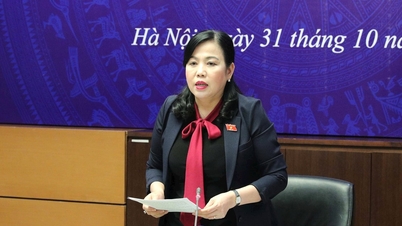








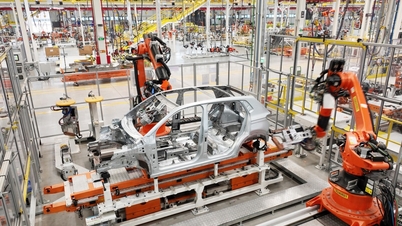








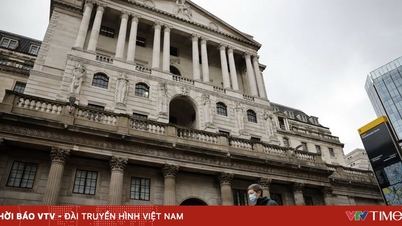


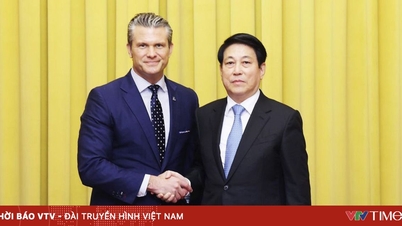








































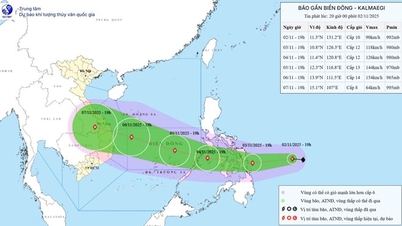







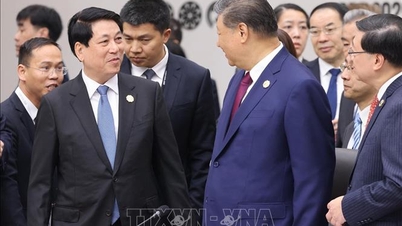

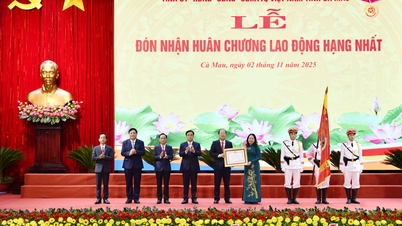




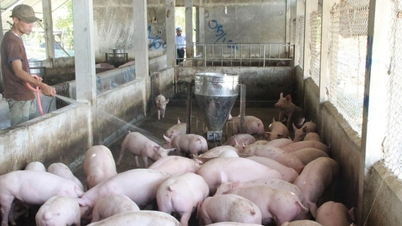




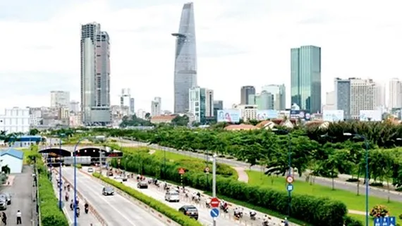














Comment (0)